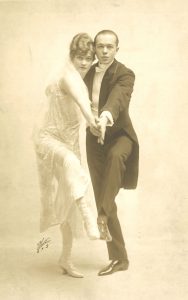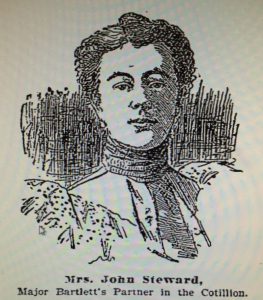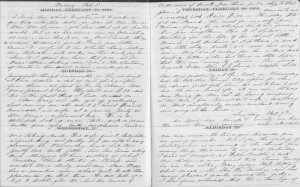
My great-grandmother’s maiden name was Beeckman – not the more fashionable Beekman,[1] as in Beekman Place – a name which enjoyed something of a vogue around the turn of the last century, in the person of my great-great-uncle Robert Livingston Beeckman (1866–1935). Uncle Livy had couple of claims to fame in his lifetime – he was a nationally-ranked tennis player during the 1880s, and he served as Governor of Rhode Island (with some touting him for the presidency in 1920) – but for me the more intriguing connection comes later: his first wife was Eleanor Thomas, whose brother married the future Mrs. Cole Porter. Continue reading De-lovely




